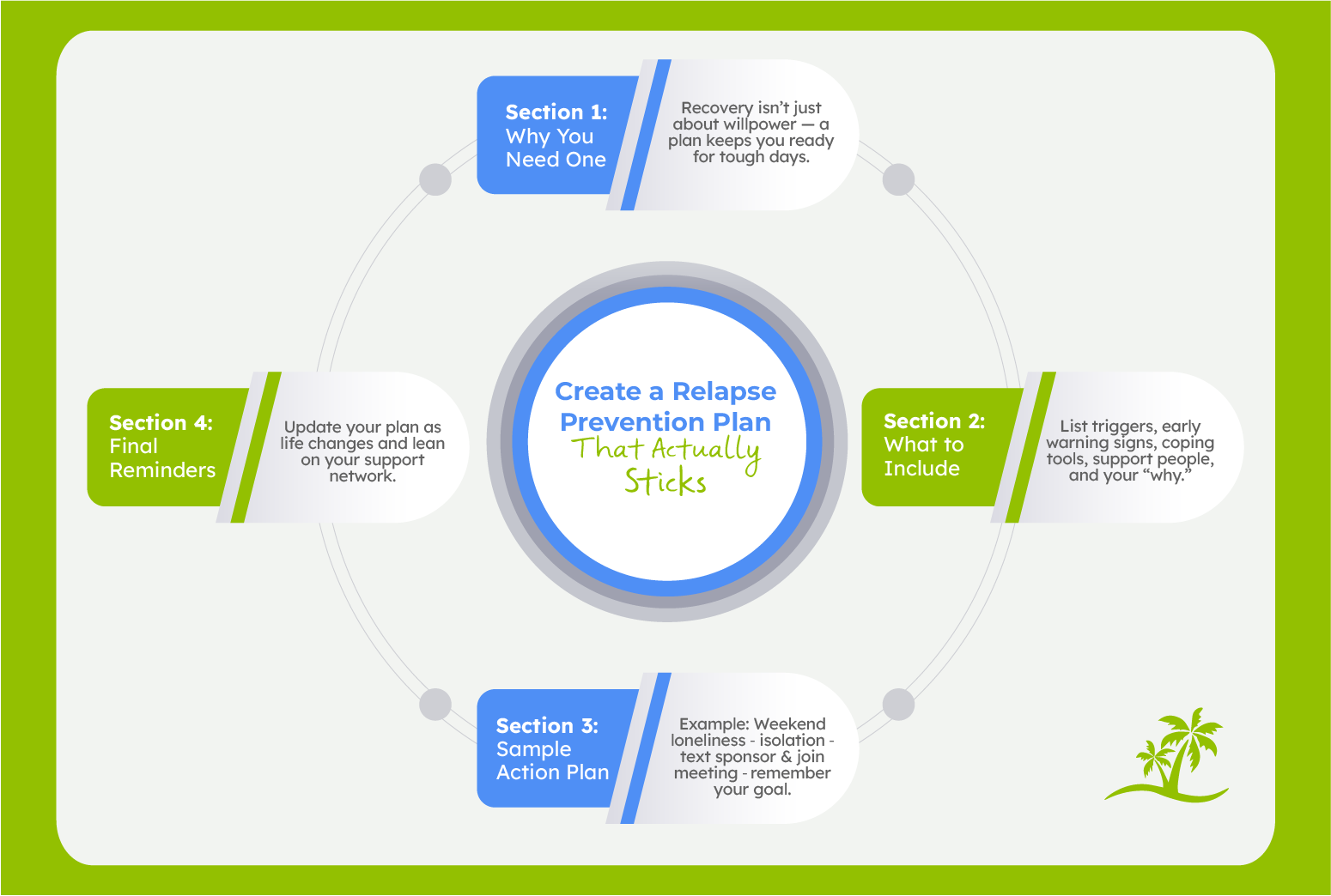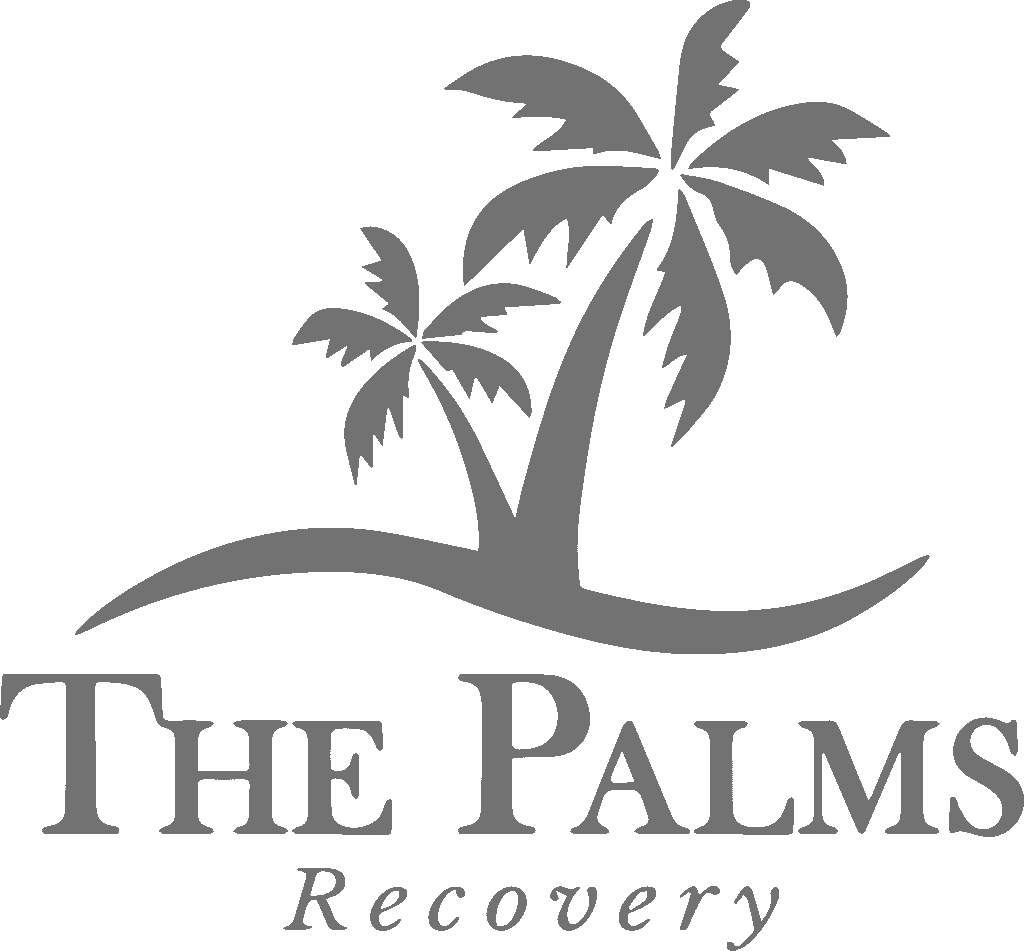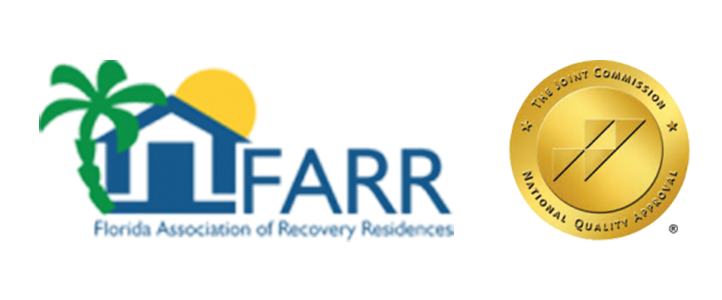Relapse is tough. It often feels like failure — but more often, it’s a sign your recovery needs more attention, not that you’ve failed.
Recovery is more than just staying clean. It’s about staying prepared. Life throws challenges, and without a plan, even the best intentions can collapse. That’s why having a relapse prevention plan isn’t just helpful — it’s necessary.
Why Good Intentions Aren’t Enough
You may tell yourself, “I’ll stay strong.” But when stress builds or cravings hit, willpower alone often falls short. A relapse prevention plan is your personal safety net — created when you’re steady, so it can guide you when you’re not.
It’s not about being perfect. It’s about being prepared.
What Is a Relapse Prevention Plan?
Wondering what is a relapse prevention plan? Think of it as a written guide to staying on track. It includes your personal triggers, early warning signs, go-to coping strategies, and your support system — all in one place. It helps you act before things unravel.
Recognize Your Triggers
Triggers are different for everyone, but some common ones include:
- Stressful workdays or personal conflicts
- Social settings with substance use
- Feeling isolated or bored
- Family arguments
- Returning to places tied to past use
Take time to reflect. What situations led you to relapse before? Write them down. Awareness is your first tool.
Watch for Early Signs
Relapse doesn’t happen suddenly. It usually starts with small shifts in mood or behavior, like:
- Skipping meetings or therapy
- Romanticizing past use
- Avoiding self-care
- Isolating from others
- Bottling up stress
Your relapse prevention plan should include your early warning signs. Spotting them early gives you a chance to act fast.
How to Write a Relapse Prevention Plan?
Learning how to write a relapse prevention plan before you need it can be the key to effective recovery. You can write it by yourself or request the help of your sponsor or therapist.
Some people find it very challenging, others find it easy.
For most people, the hardest part is identifying triggers and selecting healthy coping strategies.
At The Palms Recovery we recommend being brutally honest, especially when writing down your true motivation to stay sober. It may be the most important element of the plan.
Here’s what to include:
- Triggers – List out situations or emotions that increase your risk.
- Warning Signs – Identify the subtle signals you notice before things go south.
- Coping Strategies – Include tools like journaling, grounding exercises, calling a friend, or going for a walk.
- Support Network – Write names and contact info for trusted people: sponsor, therapist, close friends.
- Motivation – Include a sentence or two about why your sobriety matters.
Power is in the Details: Write Down Exactly How to Act When the Signs Appear
When warning signs show up, your plan should give you clear actions. Some coping strategies you might want to include:
- Call your sponsor, therapist, or a friend
- Write in a journal
- Practice slow breathing or meditation
- Step outside for fresh air or a walk
- Leave triggering situations
A solid plan means less time thinking, and more time acting.

Include Your Support Circle
Recovery isn’t something you do alone. Your relapse prevention plan should include a list of people you trust. We recommend adding at least one of each:
- Sponsor or accountability partner
- Mental health professionals
- Support group contacts
- Close friends or family
- Crisis hotline numbers
Remember Your Why
On hard days, you might forget why you started. Keep a short list of personal reasons somewhere visible. Examples:
- “I want to be fully present for my family.”
- “My peace is worth more than a quick escape.”
- “I’ve worked too hard to give up now.”
These reminders can be powerful when things get tough.
Let Your Plan Evolve
Life changes — and your plan should too. After major events like a breakup, move, or new job, check in with your strategy. Recovery is a living process, not a one-time fix.
Quick Example
- Trigger: Feeling isolated on weekends
- Early Signs: Binge-watching, skipping meals, avoiding calls
- Action: Text a friend or join a support group online
- Support Contact: Jane (Sponsor) – (555) 123-4567
- Motivation: “I want my children to be proud of me.”
Keep this list easy to access — in your phone or wallet.
If you would like to start writing your relapse prevention plan today, download our free template. It is designed to be compact enough to stay with you at all times and detailed enough to empower you and guide you through the turbulence.
Final Thought: Stay Ready
Recovery isn’t a straight path. There will be good days and hard ones. A relapse prevention plan gives you the tools to face both with confidence.
If you’re not sure where to start, reach out. Talk to someone who understands. You don’t have to do this alone — and with the right plan, you won’t have to.





